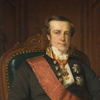Bolwerk van de oude adel? Een kwantitatieve benadering van de adellijke vertegenwoordiging in het Belgische diplomatieke korps (1840-1940)
DOI:
https://doi.org/10.18352/bmgn-lchr.10206Keywords:
Belgium, History, Diplomacy, NobilityAbstract
European diplomatic services in the nineteenth-century have often been characterised as strongholds of the old nobility. This article challenges this hypothesis by proposing a quantitative approach to the representation of the noble class in the Belgian diplomatic corps between 1840 and 1940. It is argued that, in comparison to the situation in the major European countries at that time, the Belgian nobility did not constitute a dominant factor in the diplomatic service, although it was better represented in the higher echelons. Throughout the nineteenth century, the number of aristocrats in the diplomatic service surprisingly rose simultaneously with the democratisation of politics. This re-aristocratisation of the diplomatic career is attributed mainly to the conferment of noble titles to diplomats with a middle-class background. Furthermore, this article will show that the democratisation of the diplomatic corps was a slow and gradual process, spread over the first half of the twentieth century.
De negentiende-eeuwse Europese diplomatieke diensten zijn vaak getypeerd als een bolwerk van oude adellijke families. Dit artikel bestudeert deze hypothese door de adellijke vertegenwoordiging in de Belgische diplomatie tussen 1840 en 1940 op een kwantitatieve manier te benaderen. In vergelijking met de Europese grootmachten van deze periode, vormde de Belgische adel geen dominante factor binnen de Belgische diplomatie, hoewel edelen wel beter vertegenwoordigd waren in de hoogste rangen van de hiërarchie. Verrassend genoeg steeg het aantal edelen aan het einde van de negentiende eeuw, op het moment dat de politiek meer en meer op een democratische basis georganiseerd werd. Deze re-aristocratisering van de diplomatieke carrière is voornamelijk toe te schrijven aan het verlenen van titels aan diplomaten met een burgerlijke achtergrond. Verder toont dit artikel aan dat de democratisering van het diplomatieke korps in de eerste helft van de twintigste eeuw een traag en geleidelijk proces was.
Downloads

Published
Issue
Section
License
Authors who publish with this journal agree to the following terms:
a) Authors retain copyright and grant the journal right of first publication with the work simultaneously licensed under a Creative Commons Attribution 4.0 International (CC BY 4.0) that allows others to share the work with an acknowledgement of the work's authorship and initial publication in this journal.
b) Authors are able to enter into separate, additional contractual arrangements for the non-exclusive distribution of the journal's published version of the work (e.g., post it to an institutional repository or publish it in a book), with an acknowledgement of its initial publication in this journal.
c) Authors are permitted to post their work online (e.g., in institutional repositories or on their website) prior to and during the submission process.
Authors are explicitly encouraged to deposit their published article in their institutional repository.











